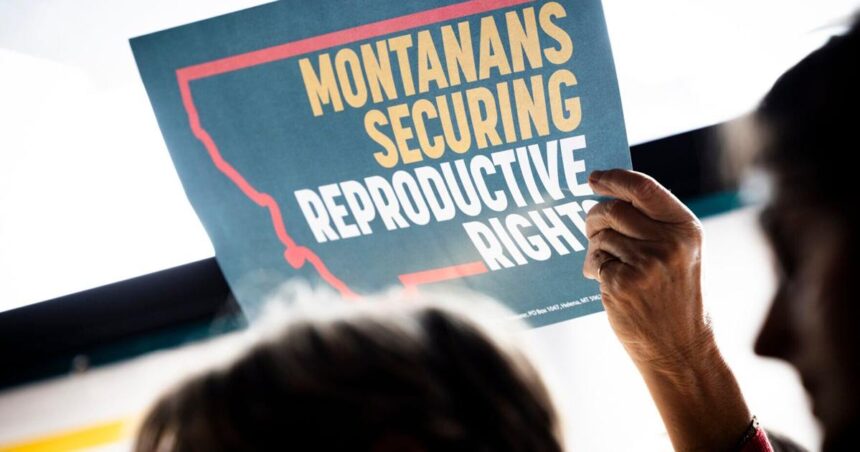Wanda Walker first moved to Montana two years after Roe v. Wade had granted her and all women in the country a general right to an abortion. She remembers the relief she felt no longer having to wonder whether her reproductive choices were her own.
Today, almost 50 years and a Supreme Court decision overturning Roe later, Walker has observed a “dramatic change” in the dialogue around abortion in Montana. A Billings resident of nearly five decades, Walker said it was a “non-issue” for years. Now, she feels like reproductive health has become a political cudgel.
Once Walker heard about Citizens Initiative 128, the proposed ballot measure that would allow Montana voters to decide whether to add an explicit abortion protection into the state Constitution, she was “rearing at the bit” to get started. Abortion is legal in Montana, but that’s because of a state Supreme Court precedent that Republicans, who hold power in the statehouse, would like to reverse.
People are also reading…
A proposed constitutional amendment isn’t the only way abortion is on the ballot in Montana this election cycle. Roe’s overturning opened the door to further incursions on reproductive rights, and what might come to fruition will be largely driven by the candidates voters pick to hold office, abortion rights advocates say.
Walker, a 72-year-old mother of three daughters, has spent much of the last few weeks collecting signatures on behalf of Montanans Securing Reproductive Rights, or MSRR, the coalition spearheading the effort. It must submit 60,000 signatures by June 21 to be verified by the Secretary of State to be on the ballot in November.
“I just get really offended when people talk about my body,” she said. “They don’t have a right to talk about my body. That’s my personal feeling. That’s why I’m in the game.”
Supporters of CI-128 holds a sign during a signature kickoff event hosted by Montanans Securing Reproductive Rights on April 16.
‘If you want the woman to make the decision, vote for me’
Montanans can currently receive an abortion any time before fetal viability, which the state defines as roughly 24 weeks into pregnancy. Although there are only a handful of abortion providers in the vast state, patients can also receive medication abortion by mail or get prescriptions via telehealth appointments.
Efforts to chip away at abortion access in the Republican-led state have been largely unsuccessful as the courts have struck down bills they’ve passed, but that hasn’t kept politicos from making reproductive health central to this year’s election cycle.
Republicans have positioned themselves as safekeepers of family values and defenders of human life. Montana Democrats, who traditionally run more to the ideological middle, have told voters in no uncertain terms that abortion is on the ballot this November in the form of which candidates they select.
Who controls the U.S. Senate will play a major role in what kinds of policies advance in Congress regarding not just abortion but also things like the availability of contraception. One of the seats identified as most likely to decide that balance of power is in Montana, where incumbent Democratic Sen. Jon Tester is looking to hold on to his seat against Republican challenger Tim Sheehy.
At the June 9 debate between the two, the contours of the debate were made clear by the candidates themselves.






